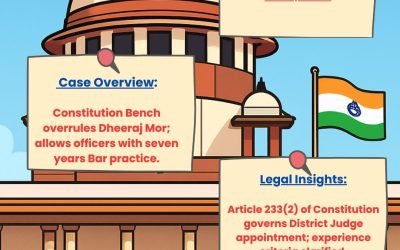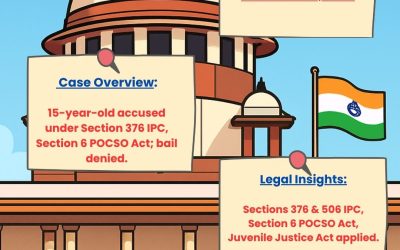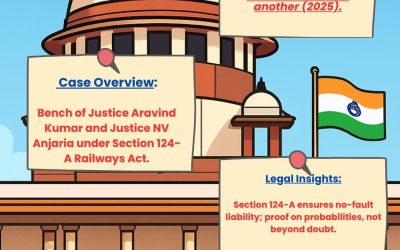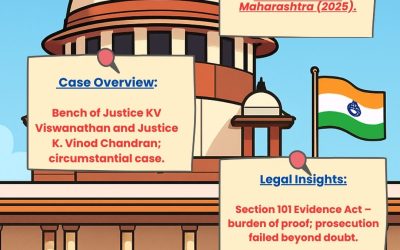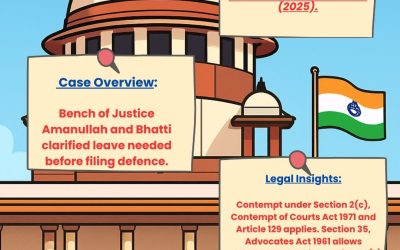 Headline
Headline
The Supreme Court of India ruled that evidence of continuous harassment is the main point for invoking Section 113B of IEA.
Summary
The Supreme Court of India on 9th January 2025, acquitted an accused of abetment of suicide and cruelty under Indian Penal Code (IPC) and Dowry Prohibition Act by clearly stating that for the appliability of Section 113B of the Indian Evidence Act(IEA) clear evidence of continuous harassment is needed.
Key Facts
- Case Name: Ram Pyarey v. State of Uttar Pradesh
- Judges Name: Justice J.B. Pardiwala and Justice R. Mahadevan.
- The appellant, the brother-in-law of the deceased, was convicted by the Trial Court under Sections 306 and 498A of Indian Penal Code (IPC).
- The deceased had died by suicide by continuous harassment for dowry by her husband, in-laws, and the appellant.
Legal Insights
- The Supreme Court stated the difference between Sections 113A (abatement of suicide) and 113B (dowry death) of the Evidence Act.
- Under Section 113B of Indian Evidence Act, the Court may presume guilt only if there is strong evidence of harassment, unlike Section 113A of the Indian Evidence Act , where the presumption is mandatory.
Impact
The judgment focuses on the significance of clear evidence in the cases of dowry death and protecting against misuse of presumptions under Section 113B of IEA.
Why It Matters
This ruling of the Supreme Court shed light on evidentiary standards under the Evidence Act, making sure of fair trials while addressing societal concerns over dowry deaths.
Source


